Weight Loss Meal Plan That Actually Works: Why Timing Beats Calorie Counting Every Time

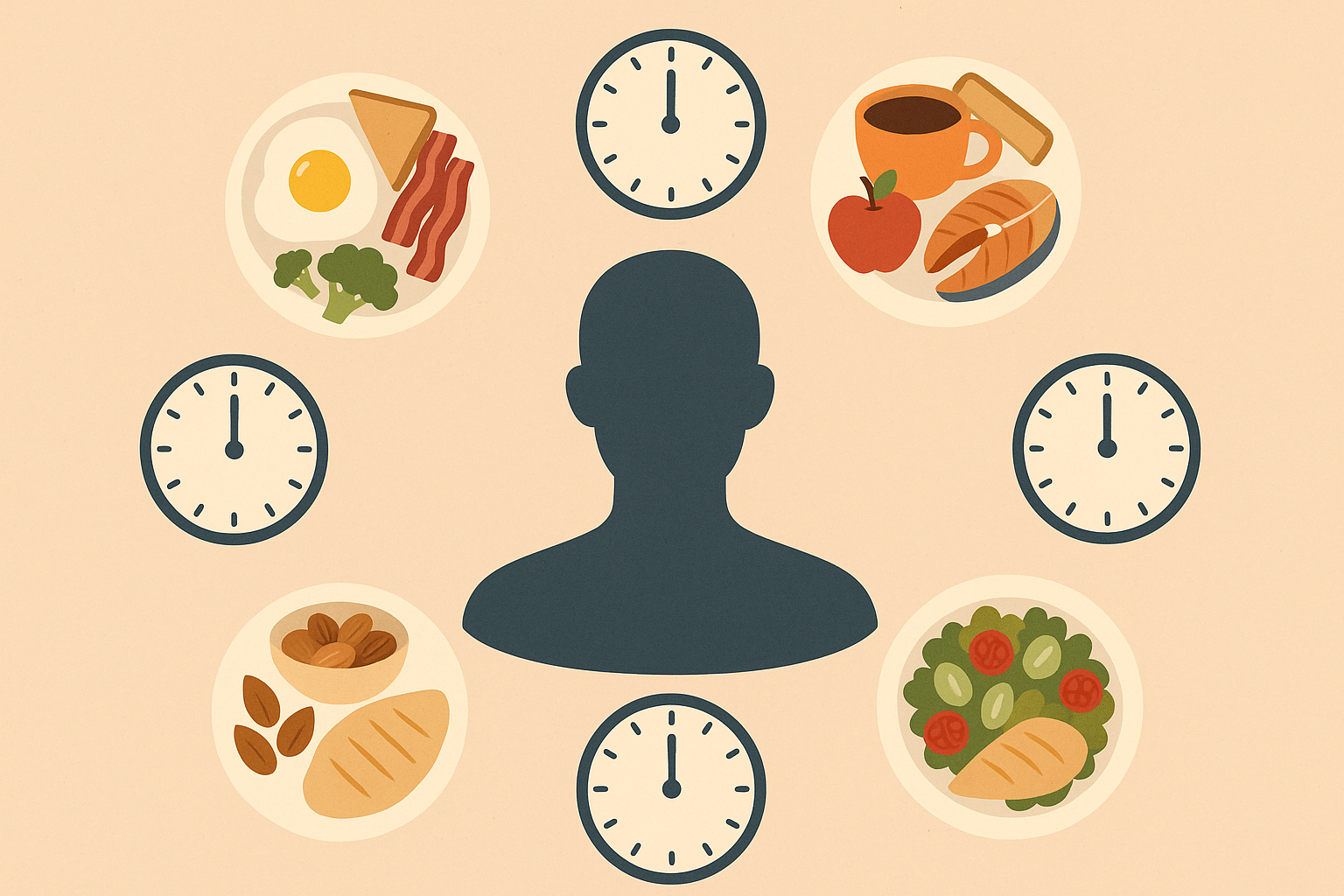
Table of Contents
- The Real Problem with Traditional Weight Loss Meal Plans
- Your Body’s Hidden Clock: The Circadian-Metabolic Connection
- Why Your Hormones Are Sabotaging Your Diet (And How to Fix It)
- The Micronutrient Secret Most Meal Plans Ignore
- Your Environment Is Making You Fat: The Social-Psychological Factor
- Mediterranean Diet 2.0: Strategic Modifications for Real Weight Loss
- Training Your Metabolism to Be Flexible (Not Stubborn)
TL;DR
- Look, I used to think my metabolism was broken. Turns out, I was just eating at all the wrong times. Once I figured out when my body actually wanted food, everything clicked.
- You know that friend who never seems to get full? That was me. My “I’m satisfied” signal was basically broken – but you can fix this.
- Your body tricks you into overeating when it’s desperately searching for specific nutrients that just aren’t in the junk you’re eating.
- The people around you have a huge impact on how you eat, and your environment should make healthy choices automatic, not require superhuman willpower.
- The Mediterranean diet is great, but let’s be honest – those generous olive oil drizzles add up fast when you’re trying to lose weight.
- Your body should be able to go longer than four hours without food. If you can’t, your metabolism is stuck in one gear.
The Real Problem with Traditional Weight Loss Meal Plans
Look, I’ve been there. You follow some fancy meal plan religiously for weeks, maybe even see the scale move a little, then BAM – everything just stops working. And everyone tells you it’s because you’re not trying hard enough or you “fell off the wagon.”
But here’s what nobody talks about: most meal plans are missing the biggest piece of the puzzle. They obsess over what you’re eating but completely ignore when you’re eating it. It’s like trying to plant a garden without caring about the seasons.
Expert dietitians recognize that giving your body two to three hours between meals allows your blood glucose to lower to a desirable level before your next meal, yet most traditional plans ignore this crucial timing element. Your body isn’t some simple calculator that processes a calorie the same way at 7 AM as it does at 7 PM. That’s just not how we’re built.
I learned this the hard way after years of eating the “right” foods at completely wrong times and wondering why I felt like garbage. The truth is, your metabolism has a schedule. Work with it, and weight loss becomes so much easier. Fight against it, and you’ll be white-knuckling your way through every day, wondering why you can’t stick to anything long-term.
Understanding the science behind intermittent fasting for women can help you grasp why timing matters more than calorie restriction alone.
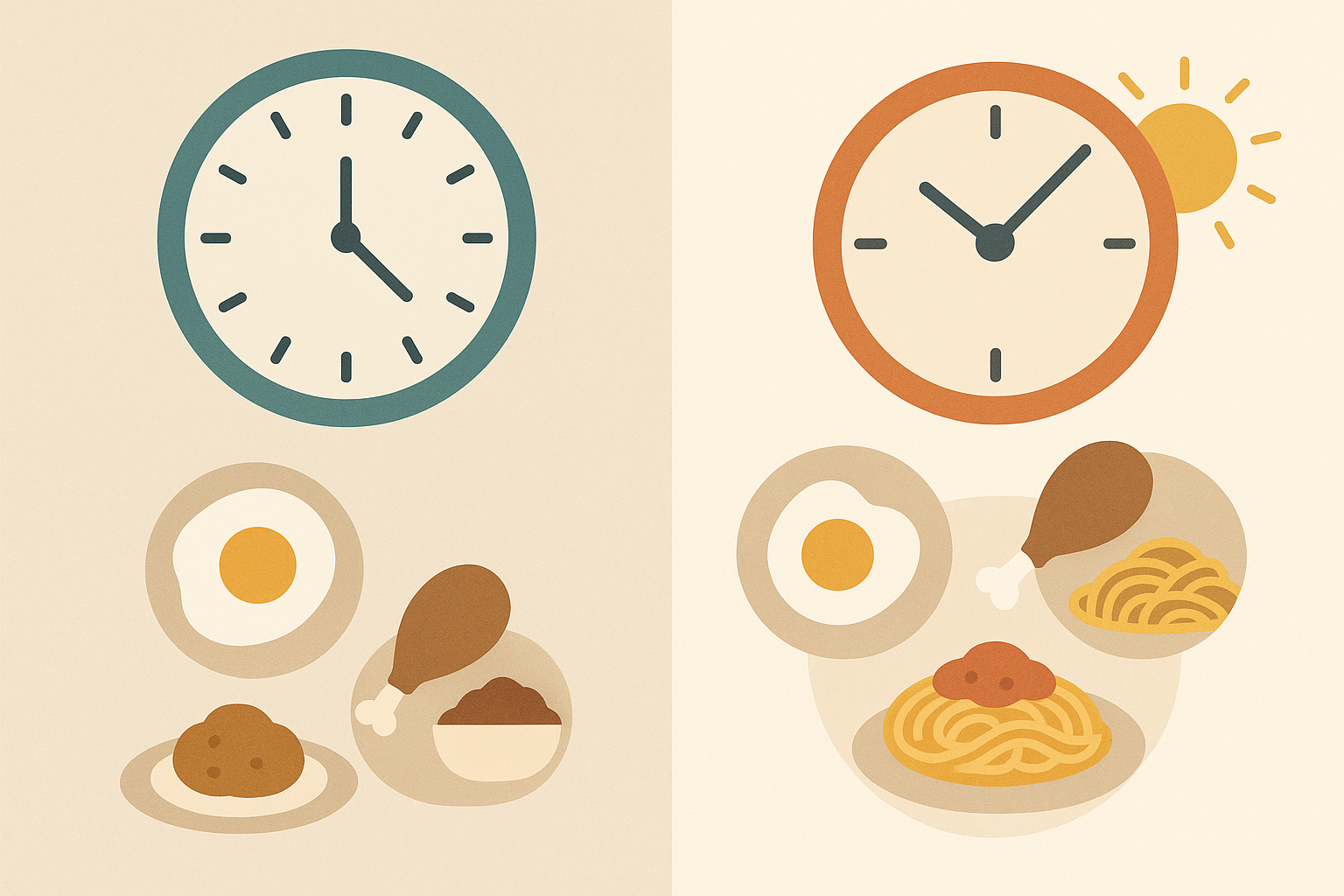
Your Body’s Hidden Clock: The Circadian-Metabolic Connection
Here’s something that blew my mind when I first learned it: your metabolism isn’t the same all day long. It’s like your body has different “modes” – sometimes it’s ready to process food efficiently, other times it just wants to store everything as fat.
Most of us have this completely backwards. We skip breakfast (when our body is primed to use calories), grab some sad desk salad for lunch, then eat our biggest meal at dinner when our metabolism is basically putting on pajamas for the night.
Research shows that meal plans designed with specific protein and calorie targets can provide 25 grams of protein and 400 calories or 40 grams of protein and 600 calories per meal, demonstrating the importance of structured nutritional timing rather than random eating patterns. This isn’t about eating less; it’s about eating smarter by working with your biology instead of against it.
Morning: When Your Body Actually Wants Food
Remember being a kid and waking up starving? Your body was onto something. Those first few hours after you wake up are like your metabolic sweet spot. Your cells are basically saying “give us fuel, we’re ready to work!”
This is when you should be eating your biggest meal, not that tiny Greek yogurt you’re choking down while rushing out the door. I’m talking real food – eggs, toast, maybe some oatmeal with berries. Your body can actually handle it in the morning, instead of storing it all as fat like it does at night.
I used to think eating a big breakfast would make me gain weight. Turns out, it was skipping breakfast and then overeating at dinner that was the problem all along. A perfect morning meal might include 2 scrambled eggs (14g protein), 1 slice whole grain toast (4g protein), and ½ cup oatmeal with berries (6g protein) for a total of 24g protein and approximately 420 calories.
For those looking to perfect their morning routine, learning how to make perfect oatmeal can be a game-changer for consistent, satisfying breakfasts that support your goals.
Evening: Time to Pump the Brakes
By evening, your body is shifting gears. It’s getting ready to repair and restore while you sleep, not process a giant pasta dinner. But this is when most of us eat our biggest meals because, let’s face it, that’s when we have time to actually cook and sit down.
I get it – you’re tired, you’re hungry, and you want comfort food. But eating a huge meal right before bed is like asking your body to do construction work while it’s trying to sleep. It’s just not going to end well.
The game-changer for me was stopping eating about three hours before bedtime. Yeah, it felt weird at first, but my sleep got better and those stubborn pounds finally started coming off. Celebrity transformations demonstrate this principle in action. “She eats her final meal before 5 p.m. to help manage GERD, which flares when you lay down with a full stomach” according to Hola Magazine, showing how meal timing addresses both weight management and overall health.
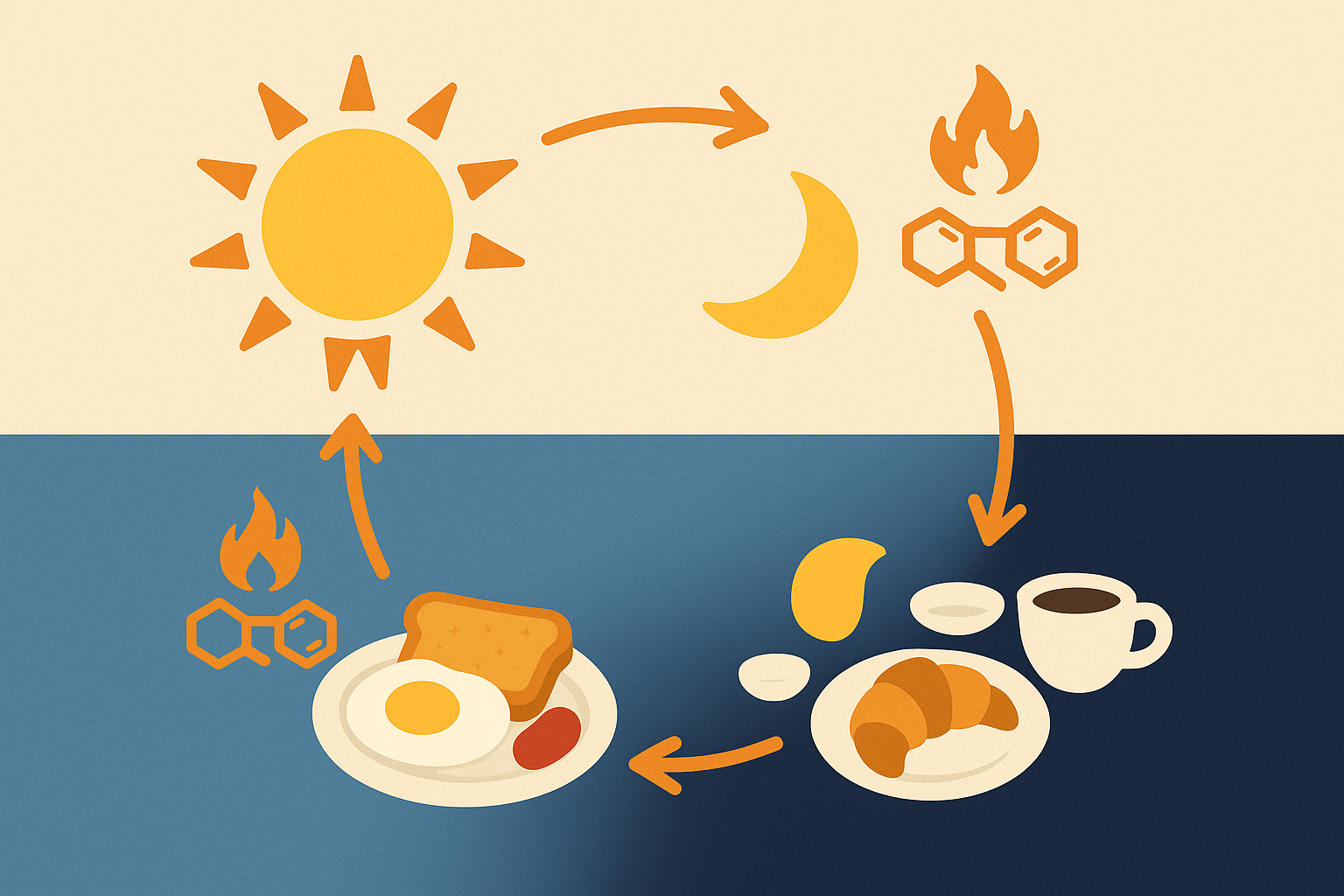
Why Your Hormones Are Sabotaging Your Diet (And How to Fix It)
Can we talk about hormones for a minute? Because this stuff is wild, and nobody ever explains it in a way that makes sense.
You know how sometimes you eat a huge meal and you’re still hungry? Or how you can be “good” all day and then lose your mind around food at night? That’s not a willpower problem – that’s your hormones being completely out of whack.
When Your “I’m Full” Signal Is Broken
There’s this hormone called leptin that’s supposed to tell your brain “hey, we’re good on food, you can stop eating now.” But for a lot of us, that signal gets jammed. It’s like having a smoke detector with dead batteries – the warning system just isn’t working.
This happened to me big time. I could eat a massive meal and still want more. I thought I was just greedy or had no self-control. Turns out, my body literally couldn’t tell when I’d had enough.
The good news? You can fix this. It takes some time and the right approach, but you can actually retrain your body to recognize when you’re satisfied. It’s not about eating less – it’s about eating in a way that lets your hormones do their job.
| Hormone | What It Does | When It’s Broken | How to Fix It |
|---|---|---|---|
| Leptin | Tells you “I’m full” | You’re always hungry despite eating | Eat biggest meals early, fast 12+ hours overnight |
| Ghrelin | Makes you hungry | Random intense cravings | Regular meal schedule, protein with each meal |
| Insulin | Manages blood sugar | Energy crashes, storing fat | Carbs in morning, protein/fat in evening |
| Cortisol | Stress hormone | Belly fat, late-night cravings | Stop eating 3 hours before bed, get morning sunlight |
The Stress-Weight Connection Nobody Talks About
Here’s something that’ll make you mad: stress literally changes where your body stores fat. When you’re stressed out (and let’s be honest, who isn’t these days?), your body starts hoarding fat around your middle like it’s preparing for some apocalypse.
I used to stress-eat my way through work deadlines, then beat myself up for “having no willpower.” But eating when you’re stressed is like trying to have a conversation during a fire alarm – your body just can’t process things normally.
The solution isn’t to never feel stressed (good luck with that). It’s about not eating when you’re in full stress mode. Sometimes that means waiting 20 minutes for your heart rate to come down. Sometimes it means taking three deep breaths before you eat. Small stuff, but it makes a huge difference.
The connection between stress and weight gain is crucial to understand, which is why exploring where your body stores tension can reveal important insights about your patterns.
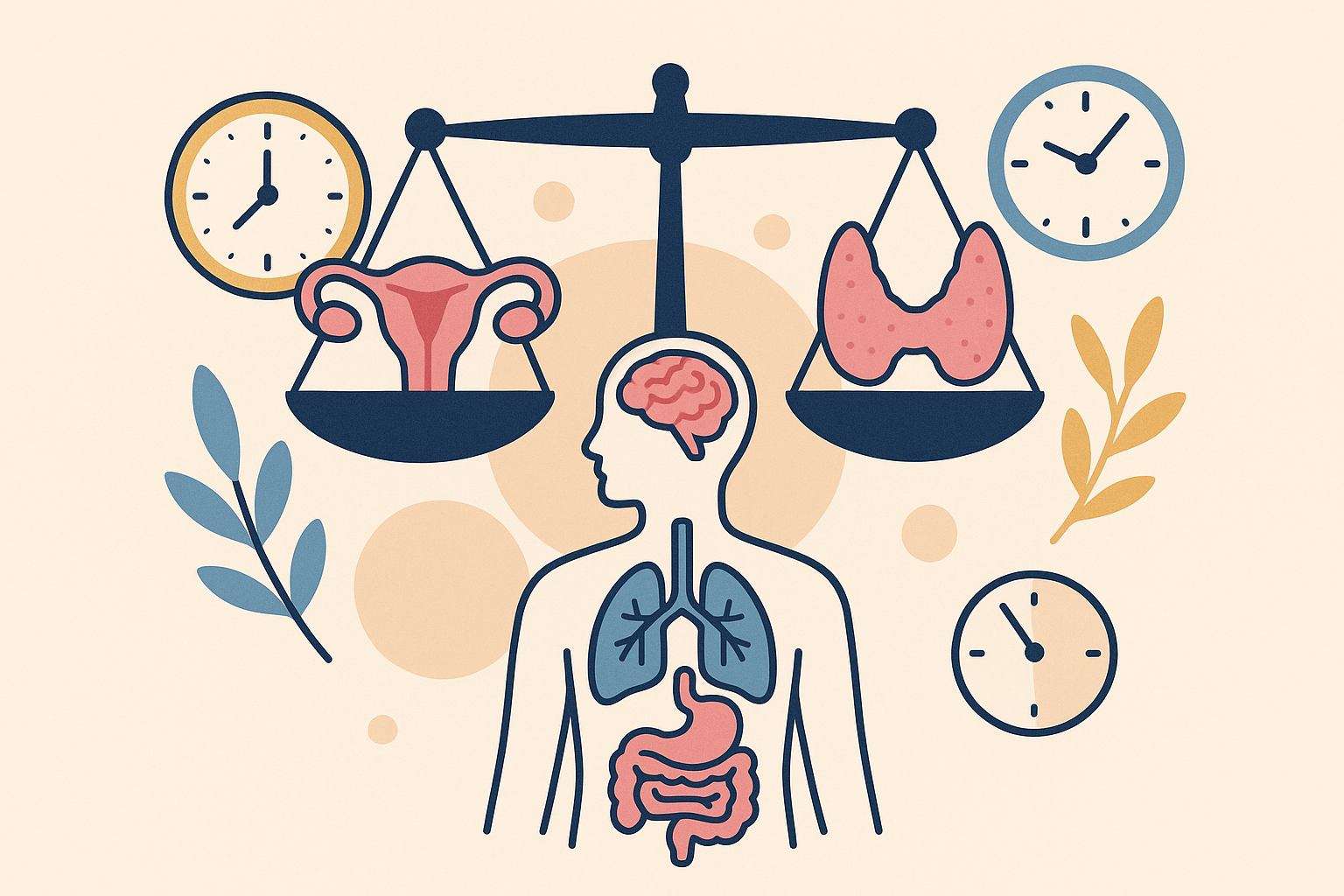
The Micronutrient Secret Most Meal Plans Ignore
Okay, this is where things get really interesting. You know how you can eat a ton of food and still feel hungry? A lot of times, it’s because your body is desperately searching for specific nutrients that just aren’t in the junk you’re eating.
It’s like being thirsty but only drinking soda – you’re putting liquid in your body, but you’re not actually getting what you need. So you keep drinking more soda, feeling worse and worse.
When Your Body Tricks You Into Overeating
Your body is smart, but sometimes it’s not very specific with its requests. When you’re low on magnesium, for example, you might get intense chocolate cravings. But instead of eating some dark chocolate or pumpkin seeds (which actually have magnesium), most of us reach for a candy bar.
The candy bar gives you a temporary sugar high, but it doesn’t fix the underlying problem. So an hour later, you’re craving chocolate again. It’s this endless cycle that makes you feel like you have zero self-control around certain foods.
Once I started paying attention to what my cravings might actually mean, everything changed. Craving chocolate? I’d have a square of dark chocolate with some almonds. Wanting something salty? Maybe I needed more minerals, so I’d have some olives or nuts.
If you’re craving chocolate constantly, you might be magnesium deficient. Instead of fighting the craving, eat 1 oz of dark chocolate (70%+ cacao) with 1 tablespoon of pumpkin seeds – you’ll get 64mg of magnesium while satisfying the craving in a controlled way. Understanding simple ways to improve digestion can help your body better absorb these crucial nutrients from your food.
It sounds too simple to work, but I swear, addressing the actual nutrient need instead of just fighting the craving made those intense food obsessions basically disappear.
Plant Compounds That Actually Help
Here’s something cool I learned: certain plant compounds can actually help your body burn fat more efficiently. I’m not talking about magic pills or weird supplements – just regular foods that happen to contain powerful compounds.
Things like the polyphenols in berries, the compounds in green tea, the antioxidants in colorful vegetables. When you eat these regularly, your body gets better at using stored fat for energy instead of just demanding more food all the time.
The Mediterranean diet is naturally rich in these compounds, which is probably why people in those regions tend to stay leaner without obsessing over calories.
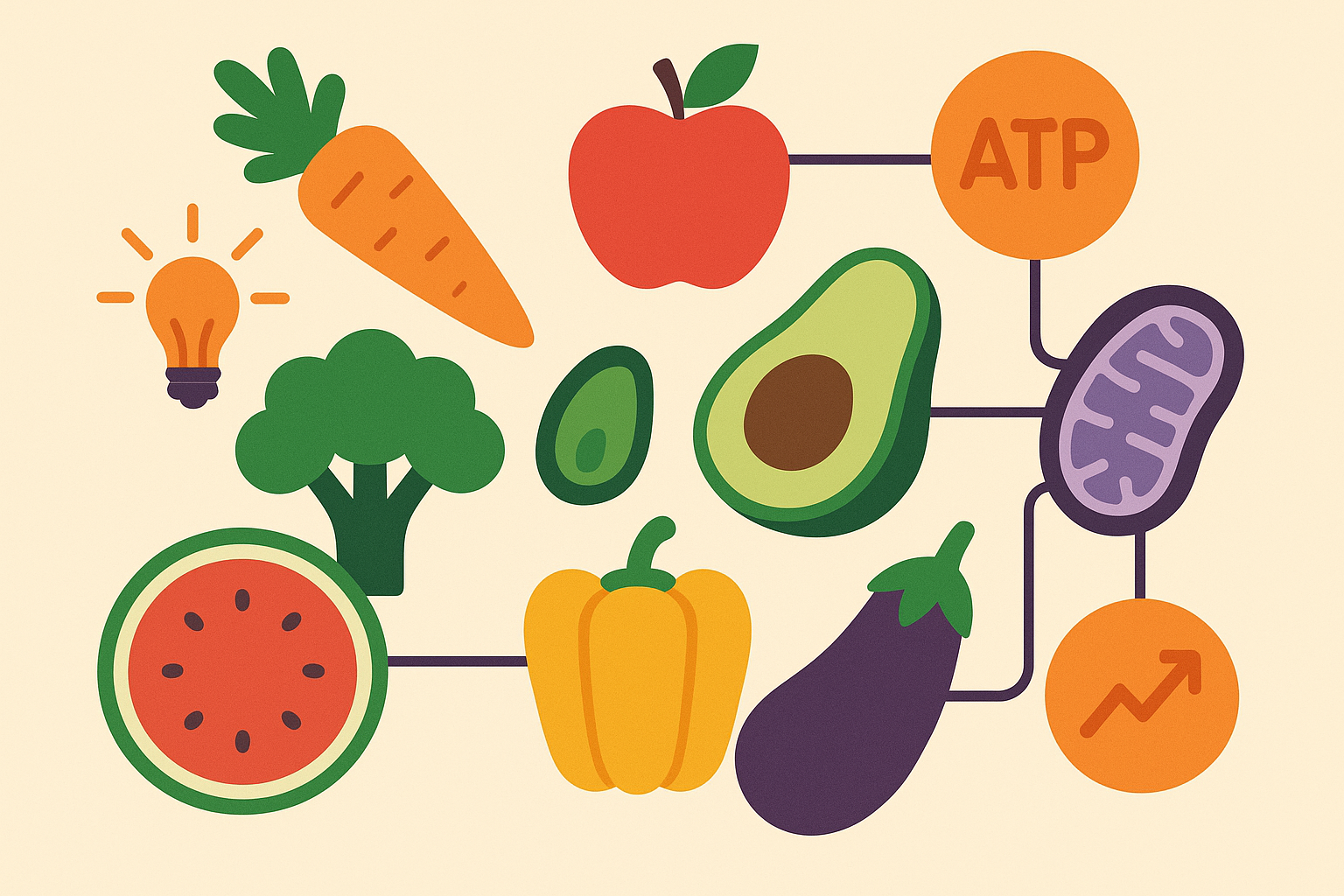
Your Environment Is Making You Fat: The Social-Psychological Factor
Let’s talk about something nobody wants to admit: the people around you have a huge impact on how you eat. And I don’t just mean your partner who brings home donuts (though we need to talk about that too).
Why Willpower Isn’t Enough
I used to think successful weight loss was all about having enough willpower to resist temptation. But willpower is like a muscle – it gets tired. By the end of a long day, when you’re stressed and exhausted, that bag of chips is going to win every time.
The secret isn’t having superhuman self-control. It’s setting up your environment so the healthy choice is also the easy choice.
I moved all the junk food to the top shelf of my pantry (where I’d need a step stool to reach it) and put cut vegetables at eye level in my fridge. Sounds ridiculous, but that extra 30 seconds of effort was enough to make me pause and think “do I really want this, or am I just bored?”
Environmental Setup That Actually Works:
- Move fruits and vegetables to eye level in your fridge
- Store processed snacks where you need a step stool to reach them
- Use smaller plates (seriously, this works)
- Create one designated eating area – no more mindless kitchen grazing
- Keep healthy snacks visible on your counter
- Hide or remove food advertisements and triggers from your main living spaces
The People Problem
Here’s an uncomfortable truth: some people in your life might not be thrilled about your weight loss efforts. Maybe they feel judged by your healthy choices, or they miss having an eating buddy for late-night pizza runs.
I’m not saying you need to dump all your friends, but you do need to be aware of this dynamic. That coworker who always brings in donuts and gets offended when you don’t take one? They’re not trying to sabotage you, but the effect is the same.
Learning to navigate these social situations without being a jerk about it is honestly one of the hardest parts of changing your eating habits. But it’s also one of the most important. You need to practice polite ways to decline food pushers and maybe find new social activities that don’t revolve around eating.
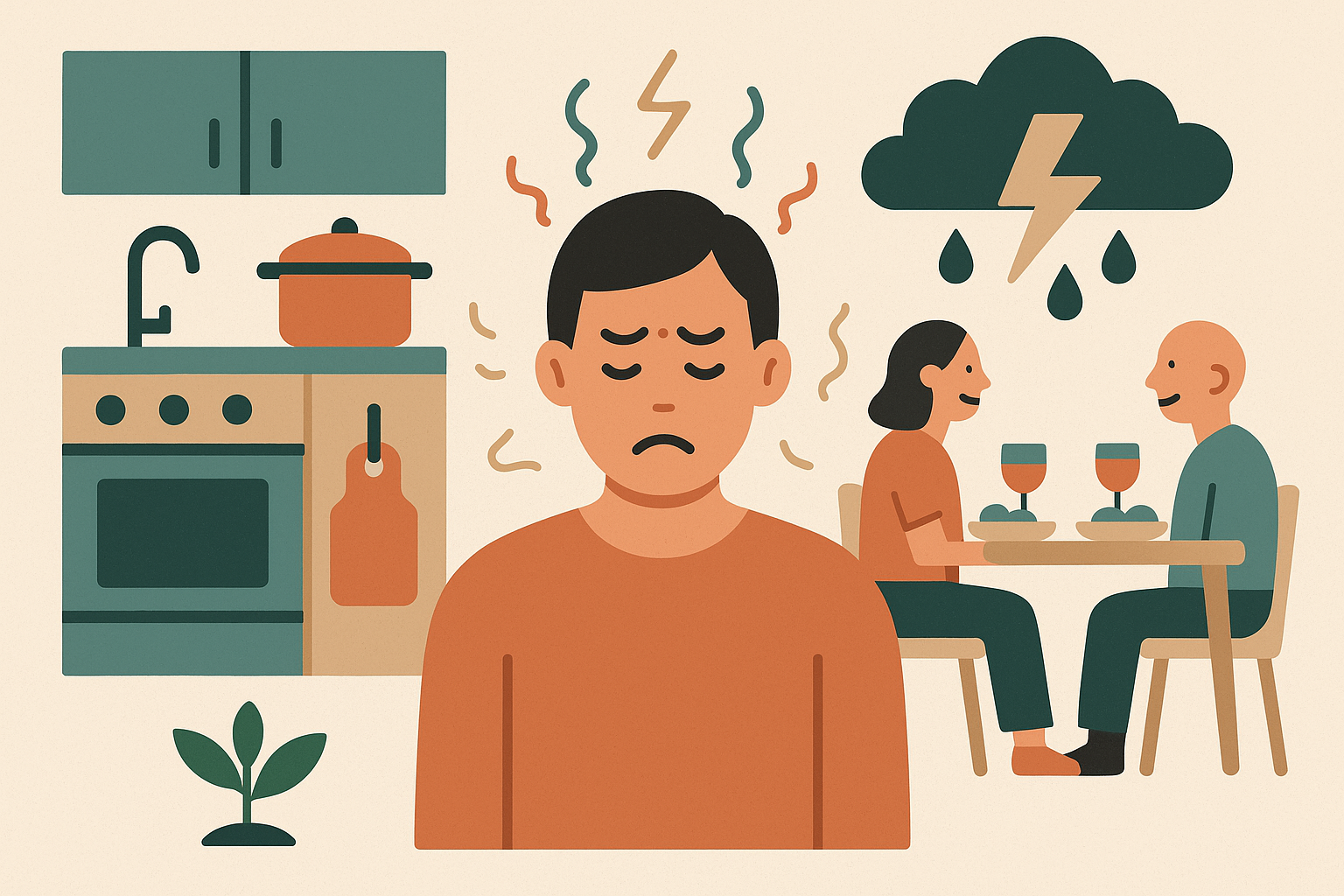
Mediterranean Diet 2.0: Strategic Modifications for Real Weight Loss
Everyone loves the Mediterranean diet because it sounds fancy and involves wine. But here’s the thing – traditional Mediterranean eating patterns need some tweaks if your goal is actually losing weight, not just being healthy.
Budget-conscious meal planning shows that expert dietitians can plan a week of healthy meals for under £55 for two people, proving that Mediterranean-style eating doesn’t have to be expensive when you’re strategic about portions and timing.
The Olive Oil Reality Check
Mediterranean recipes call for olive oil like it’s water. “Drizzle generously,” they say. “Use liberally.” But olive oil, even the good stuff, is still 120 calories per tablespoon. Those generous drizzles add up fast.
I’m not saying to eliminate olive oil – it’s got great health benefits. But if you’re trying to lose weight, you need to be strategic about it. One tablespoon per meal, max. Measure it out instead of just pouring. Use it where it counts most for flavor.
The Mediterranean approach to eating is still fantastic – lots of vegetables, fish, whole grains, herbs and spices. Just dial back the oil a bit and pay attention to portions. You can still enjoy the flavors without drowning everything in calories.
For those interested in premium quality, exploring Italian extra virgin olive oil can help you understand what makes certain oils superior for both health and weight management – just remember to use them strategically.
Making It Work in Real Life
The Mediterranean diet works great if you live in a small Greek village where you can buy fresh fish every morning and have three-hour lunch breaks. For those of us living in the real world, it needs some modifications.
Meal prep becomes your friend. Cook a big batch of Mediterranean-style chicken with vegetables on Sunday, portion it out for the week. Keep canned fish, olives, and nuts on hand for quick meals. Use frozen vegetables when fresh ones are expensive or going bad in your fridge.
A Mediterranean weight-loss lunch might combine ½ cup white beans (7g protein) with 2 oz feta cheese (8g protein) and mixed greens drizzled with 1 tablespoon olive oil – providing 15g complete protein, healthy fats, and fiber for sustained satiety.
The goal is capturing the spirit of Mediterranean eating – fresh, simple, flavorful food – without making it another source of stress in your life.
Strategic Spice Game
Here’s where the Mediterranean approach really shines for weight loss: the spices. These aren’t just for flavor – they actually help your metabolism work better.
| Mediterranean Spice | What It Does | How Much | When to Use It |
|---|---|---|---|
| Turmeric + Black Pepper | Reduces inflammation, boosts fat burning | 1 tsp turmeric, pinch pepper | With meals that have healthy fats |
| Cinnamon | Helps control blood sugar | ½ tsp | Before you eat carbs |
| Oregano | Supports metabolism | 1-2 tsp fresh or ½ tsp dried | With protein sources |
| Rosemary | Antioxidant powerhouse | 1 tsp fresh | While cooking |
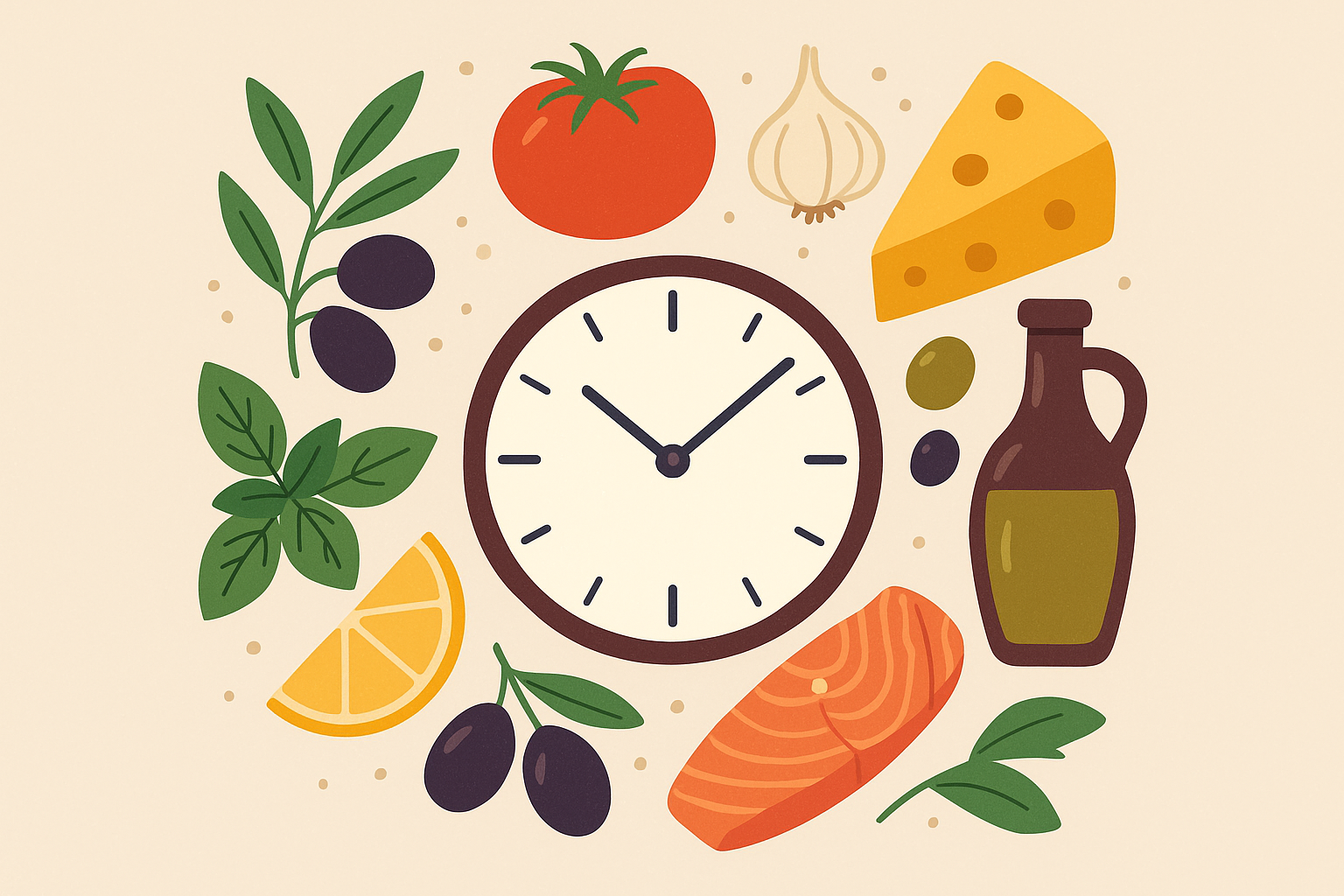
Training Your Metabolism to Be Flexible (Not Stubborn)
Here’s something most diets get wrong: they teach your body to be completely dependent on constant eating. You eat every 2-3 hours, and if you miss a meal, you feel like you’re dying.
But your body is designed to be flexible. It should be able to run on stored energy when food isn’t available, and efficiently use food when it is available. Most of us have lost this flexibility.
Recent research from the University of Illinois supports this flexible approach, showing that “dieters in a clinical trial who incorporated craved foods into a balanced meal plan lost more weight during the 12-month weight-loss program” compared to restrictive approaches.
Breaking the Constant Eating Cycle
I used to panic if I went more than four hours without eating. I’d get shaky, cranky, and completely obsessed with food. I thought this was normal, but it’s actually a sign that your metabolism is stuck in one gear.
Teaching your body to be comfortable with longer stretches between meals isn’t about starving yourself. It’s about training your system to access stored energy instead of demanding constant fuel input.
Start small – maybe go five hours between breakfast and lunch instead of four. Work up to longer periods gradually. Your body will adapt, and those between-meal energy crashes will become a thing of the past.
Structured meal planning shows that participants following a 1,500-calorie weight-loss plan with 30 grams of protein and 300 calories per shake can maintain metabolic flexibility while achieving consistent results through strategic timing.
Understanding how to find your carb tolerance is essential for implementing effective strategies that work with your body’s natural patterns.
Why Metabolic Flexibility Matters
When your metabolism is flexible, weight loss becomes so much easier. Your body can tap into fat stores for energy instead of demanding constant feeding. You stop thinking about food every two hours. You can enjoy a big meal without panicking about “getting back on track.”
This isn’t about being restrictive – it’s about being free. Free from constant food thoughts, free from energy crashes, free from feeling like you’re always one meal away from disaster.
Simple Flexibility Training:
- High-Activity Days: 100-150g carbs (time them around workouts)
- Moderate Days: 50-75g carbs (morning only)
- Rest Days: Under 30g carbs (vegetables only)
- Always: 1g protein per pound of body weight
- Fill the rest: Healthy fats (20-35% of total calories)
The Mediterranean lifestyle naturally supports this flexibility. They don’t snack constantly or eat around the clock. They eat satisfying meals, then go live their lives until the next mealtime.
Preventing the Metabolic Slowdown
Here’s what nobody tells you about long-term dieting: your body will eventually fight back by slowing down your metabolism. It’s like your body thinks there’s a famine happening and tries to conserve energy.
The trick is to periodically give your body a break. Have planned days where you eat a bit more, especially carbs. This resets your hormones and keeps your metabolism from getting too comfortable with low calories.
Learning about drinking vinegars for gut health can support metabolic function and prevent the digestive issues that often come with metabolic changes.
It’s not cheating – it’s strategic. Your body needs to know that food is still available, that it doesn’t need to hoard every calorie you give it.
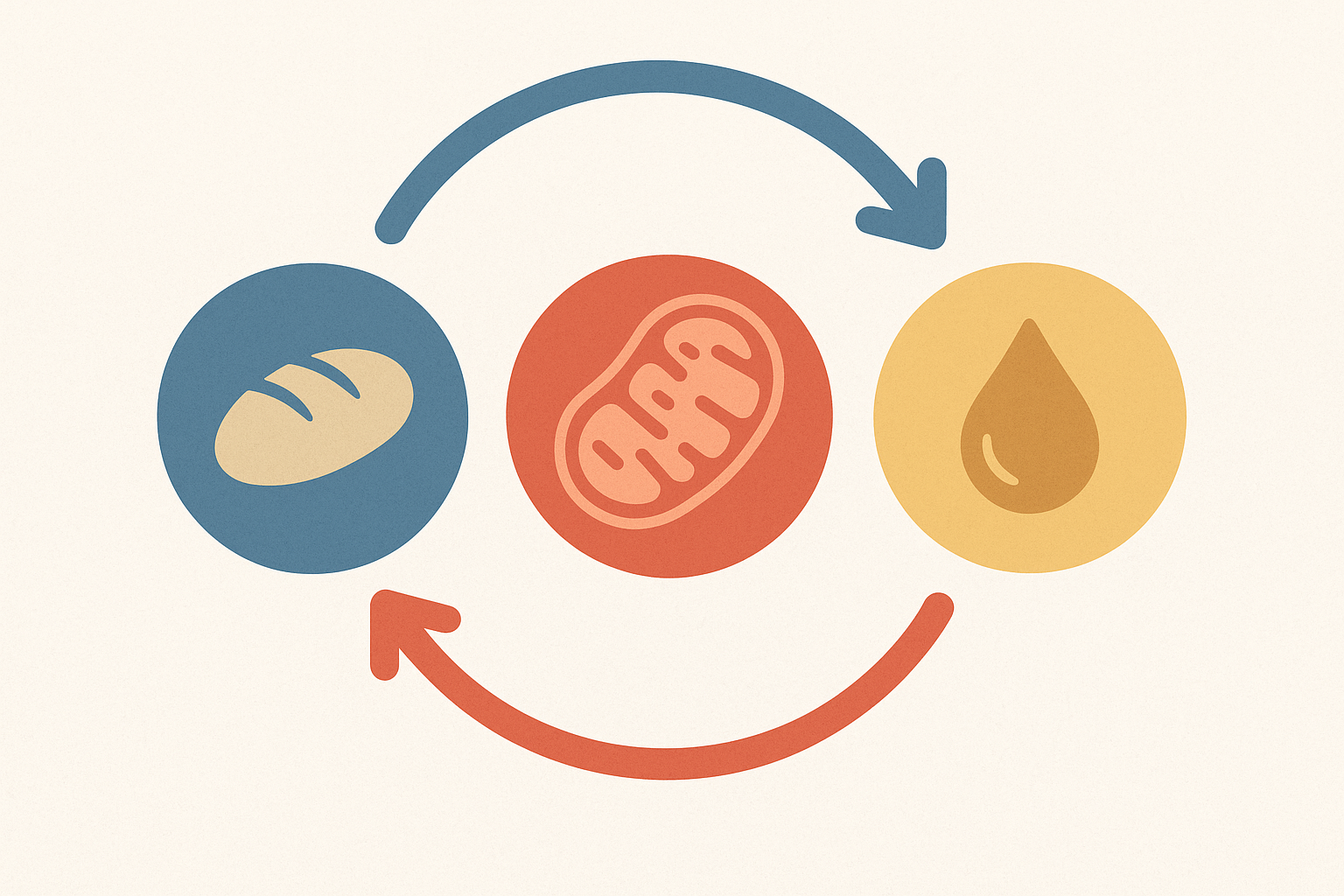
At Organic Authority, we get that sustainable weight loss isn’t about another restrictive meal plan – it’s about working with your body’s natural systems instead of against them. Our carefully selected supplements and wellness products can support your journey, from magnesium for better sleep to omega-3s for reducing inflammation. Ready to stop fighting your biology and start working with it?
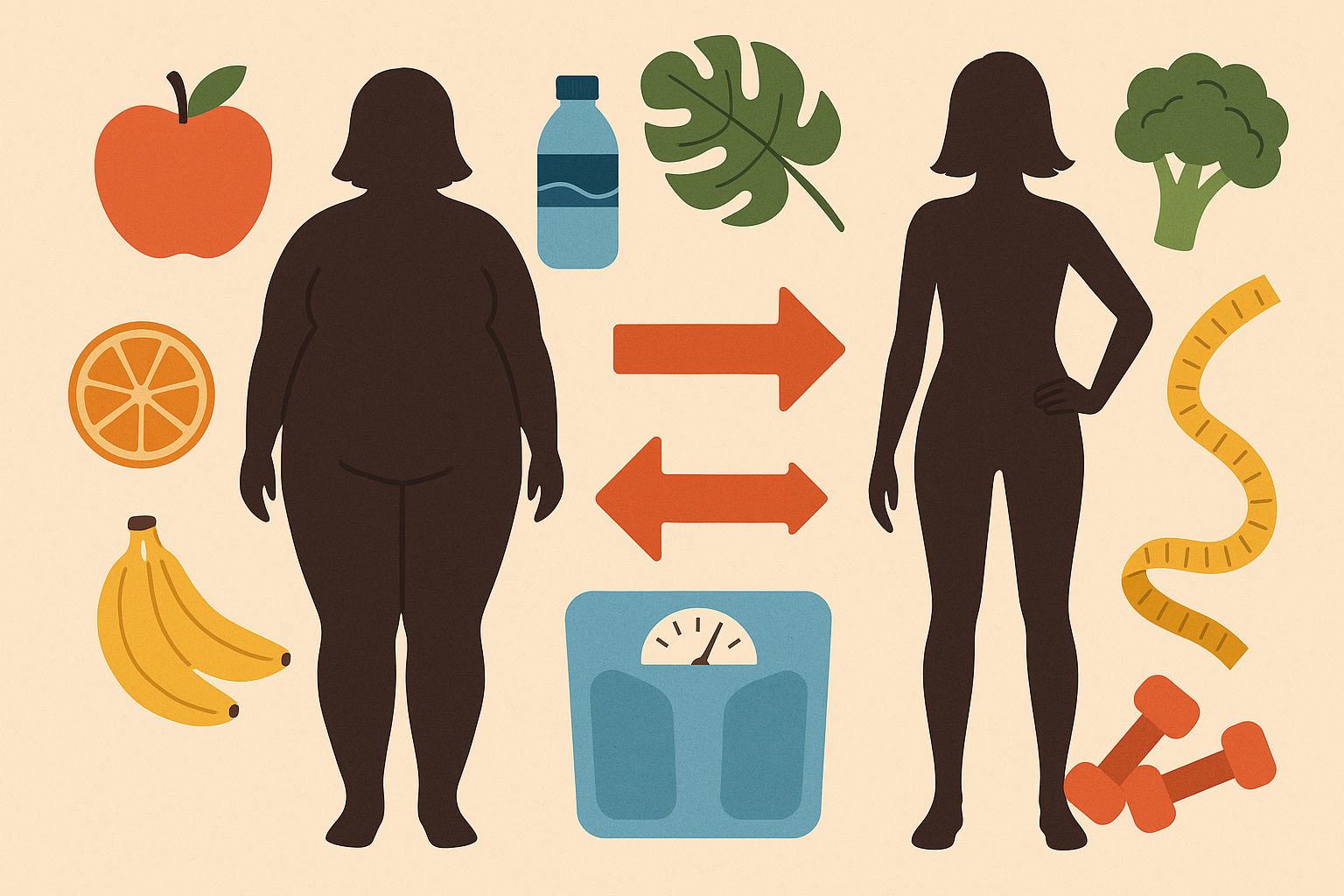
Final Thoughts
Look, I know this sounds like a lot of information, but here’s the thing – you don’t need to implement everything at once. That’s actually the opposite of what works.
Pick one or two things that resonated most with you. Maybe it’s eating your biggest meal in the morning, or maybe it’s reorganizing your kitchen so healthy choices are easier. Start there, get comfortable with it, then add something else.
The timing-based approach to weight loss isn’t about being perfect. It’s about being consistent with strategies that actually work with your biology instead of against it. Your body wants to be healthy and maintain a good weight – sometimes it just needs the right information and timing to make that happen naturally.
This isn’t another diet you’ll quit in six weeks. It’s a way of eating and living that gets easier over time, not harder. And honestly? That’s the only kind of approach that’s worth your time.
Your metabolism has been waiting for you to work with it instead of against it. Maybe it’s time to finally listen to what it’s been trying to tell you all along.

